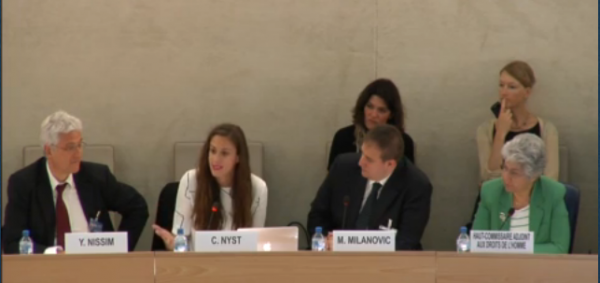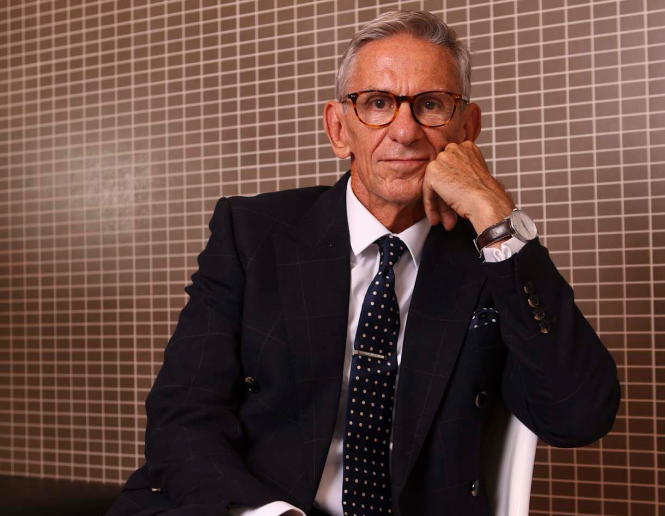On Friday last week my dear daughter Carly Nyst, a UK-based Australian lawyer who is currently the Legal Director of the human rights group Privacy International in London, addressed the United Nations Human Rights Council in Geneva on the right to privacy in the digital age. As part of a panel which included Flavia Panasieri , the Deputy High Commissioner for Human Rights, and Special Rapporteur on freedom of expression with the Inter-American Commission on Human Rights, Catalino Botero Marino, Carly told the Commission that the right to privacy is a fundamental part of human dignity, which guarantees the protection of other human rights such as the freedom of expression, and should be jealously defended by the United Nations, particularly in the wake of WikiLeaks and the Edward Snowden Affair. The Deputy High Commissioner for Human Rights Ms Botero said the Commission recognised that systematic collection of data by governments directly affects the right to privacy and freedom of expression, and appropriate safeguards and controls must be elaborated to prevent those negative effects on human rights.
In the discussion that followed, speakers from various countries and organisations noted that the digital revolution has brought liberation, but also new challenges. Alongside opportunities for communication, knowledge and business, have come new forms of abuse and crime, and new questions about data storage, privacy and access to information. Speakers from the European Union, Cuba, Pakistan, Canada, India, Indonesia, Belgium, Ireland, Estonia, Malaysia, United Nations Educational Scientific and Cultural Organization, United Arab Emirates, Russia, France, Slovenia, Italy, Netherlands, Venezuela, China, Australia, United States, Ecuador, Sierra Leone, Algeria, Romania, and United Kingdom all emphasized the importance of ensuring State surveillance of citizens is proportionate and fair, respecting international law and conventions, and governed by the rule of law with oversight by civil authorities.
Ms Nyst told the Human Rights Council that effective oversight means governments must be more transparent and honest about their surveillance activities, and stressed the need for independent legal oversight mechanisms with a comprehensive understanding of relevant technologies, so as to ensure surveillance is conducted only in accordance with the rule of law and subject to appropriate human rights safeguards.












